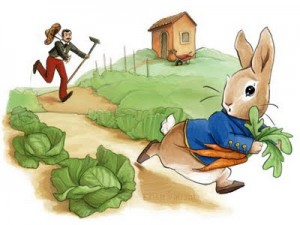We bring to you a guest post by Jithin Saji Isaac on certain portions of the DIPP’s recent Discussion Paper being plagiarized.
Last year saw a splurge of plagiarism reports including academic plagiarism, judges’ plagiarism and even the guideline to approach plagiarism being plagiarized. The stage has now been taken by the Government of India’s Department of Industrial Policy and Promotion (DIPP) of the Ministry of Commerce & Industry. The Discussion Paper on Standard Essential Patents and their availability on FRAND terms published on the website of the department, has taken substantial portions from various papers without acknowledgment. This was brought to our notice by a friend of SpicyIP, Dr. Arul Scaria through his Facebook post. Extracts of some of the comparisons can be accessed on Arul’s post.
Large portions of the Discussion Paper have been copied verbatim from a paper titled, ‘Standards-Essential Patents and Injunctive Reliefs’ published by Jones Day in 2013 without acknowledging the source. Based on Arul Scaria’s comments, the DIPP has recently replied stating that they have now acknowledged and referenced the correct sources in the footnotes section.
Plagiarism
Plagiarism is defined in the Oxford English as the action or practice of taking someone else’s work, idea, etc., and passing it off as one’s own; literary theft. It is ironical to note at this point that the Discussion Paper on page 27 has given a disclaimer that the views put forward in the paper are the views of Department of Industrial Policy and Promotion when they clearly are not.
Nani Palkhivala was once accused of plagiarism in Sampath Iyengar v. Sir Jamshedji B Kanga. We had previously blogged about the case here. The Court while deciding in favour of Palkhivala held that similar material could have been extracted from many of the actual judgments. Moreover, the extracts in question did not form a substantial portion of the book.
Copyright and De minimis Rule
From a copyright perspective, plagiarism infringes the copyright of the author of the work. One of the defenses for copyright infringement is the de minimis rule. The Delhi High Court had occasion to consider the de minimis defense to copyright infringement in India TV Independent News Service v. Yashraj Films Private Limited. To qualify for such defense, the factors commonly considered by courts are: 1) the size and type of the harm; 2) the cost of adjudication; 3) the purpose of the violated legal obligation; 4) the effect on the legal rights of third parties; and 5) the intent of the wrongdoer. The decision of the Supreme Court in R.G. Anand v. Delux Films also discussed the criteria for assessing copyright infringement. We have earlier blogged about it here.
In the present case, the discussion paper has taken substantial portions from the works of other authors and will not fall within the protection of de minimis rule.
The essential element to prove infringement, namely sufficient objective similarity between the two works is also squarely applicable to the discussion paper in question. But taking a substantial portion and copying verbatim cannot by any stretch of imagination be considered as within the ambit of any of the defenses.
Moral Rights
Apart from infringement, plagiarism also violates the moral rights of the author of the work. Section 57 of the Indian Copyright Act, 1957 confers the right to claim authorship of work. The exact reproduction of the episodes filmed by the plaintiff with modification in the credits replacing the plaintiff’s name as the producer and director was found to fall within the sphere of moral rights in Arun Chadha v. Oca Productions Pvt. Ltd.
There have also been instances where there is apparent plagiarism but not actual plagiarism. A possible instance is where the author who has been accused of plagiarism did not have access to the work which was plagiarized. A classic example of the same is that of Helen Keller who was accused of plagiarizing the short story she had written as a child in a letter to her Principal, Mr. Anagnos, “The Frost King” from the work of Margaret T. Canby, Birdie and his Friends. After much ordeal, it was brought to light that Keller was read Canby’s two years before she wrote Frost King. It appeared that her memories of Canby’s work had influenced her. The Court of Investigation was divided four to four in their opinion as to whether Keller had plagiarized from Canby. Mr. Anagnos, the Principal, cast his vote with those who were favourable to Keller and the case ended in Keller’s favour.
However, these instances of unintentional resemblances cannot come to the aid of the DIPP, as most of the articles from which the DIPP has plagiarized to a substantial extent have been acknowledged at some portions. Thus it is evident that the DIPP had access to the articles from which the DIPP had plagiarized.
Though there are many situations that would give relief to a defendant in a case of plagiarism, the act of plagiarism by the DIPP cannot fall within the scope of any of the defenses. The time is now ripe to educate such governmental agencies of the need for creativity in both their policies as well as Discussion Papers.
Image from here


DIPP discussion paper at Pg. 27 in Dislaimer clearly mentions that “views expressed in parer should NOT be construed to be of DIPP”. It is wronly reported by spicy-ip that it mentions views to be its own. Such a hasty reporting and blunders is not expected from spicy ip. Above it, it shows how hastly without checking facts news is reported. A minimum level of professionalism is expected from Spicy-ip.
“It is ironical to note at this point that the Discussion Paper on page 27 has given a disclaimer that the views put forward in the paper are the views of Department of Industrial Policy and Promotion when they clearly are not” – Careful there!
Thanks, Anon. for bringing this to notice. I almost got fooled.